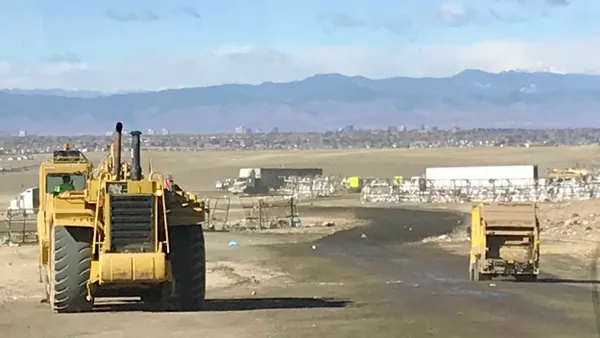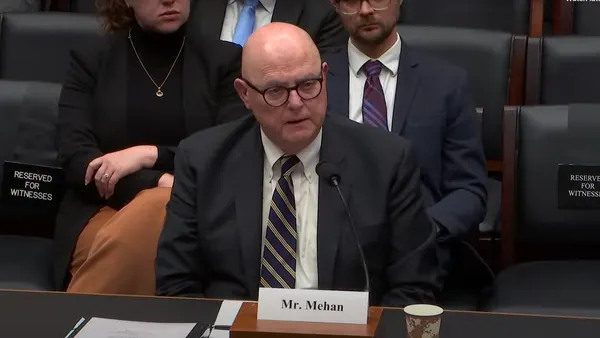UPDATE: Public comment on Casella's proposed expansion of the Southbridge landfill is ongoing, but in the meantime its relationship with one of the two local municipalities where the site is located has become more contentious, as reported by the Telegram & Gazette. Last month, a zoning enforcement officer from Charlton ordered Casella and the town of Southbridge to cease and desist any work on Charlton's land. The issue revolves around concerns about two storm water retention basins.
Casella says this is a misunderstanding, but in a move that some have interpreted as retaliatory the company has since decided to stop reimbursing Charlton for the costs of an environmental consultant. The consultant has been investigating the source of local groundwater contamination for more than a year. Since the contamination hasn't been traced to the landfill yet Casella believes it should be off the hook for these costs. Charlton's town administrator, Robin Craver, is not convinced.
"We do not accept that Casella is not responsible, and in the end, we believe that will be proven," she said.
Dive Brief:
- Casella Waste Systems' expansion permit for the Southbridge landfill in Massachusetts is currently on hold as officials seek to establish responsibility for contamination from 1,4 dioxane in local wells, as reported by Telegram.com.
- The company still maintains it is not responsible for this contamination in the nearby town of Charlton, but has agreed to continue supplying bottled water to about 20 households through the end of the year. This is the third extension of the arrangement since it began in February after the state's Department of Environmental Protection identified Casella as potentially responsible.
- State and local officials have also said that Casella should install municipal water lines to affected homes. In a reversal of position, the company has hired an engineering firm to study the feasibility of such a project.
Dive Insight:
Since the traces of dioxane and other toxic elements were found in local wells last fall, Casella's expansion plans have been mired in regulatory scrutiny and local opposition. The state's largest landfill could reach capacity by the end of 2017 and the company has been trying to make the case for its economic benefits to the region.
Even after a report from a consultant hired by the town of Southbridge suggested that Casella was not responsible for the Charlton contamination, the questions continue. DEP is now calling for more investigation into a deep bedrock aquifer, has increased the water sampling frequency from quarterly to monthly and is expanding the testing area in some cases.
Other local companies are also being questioned for any potential role, though DEP officials have reportedly said in the past that it may be hard to ever fully determine the cause of this well contamination. While DEP's regional manager only said that Casella's permitting application for the expansion was returned due to lack of information, these ongoing issues are likely a factor in an already complicated and unpopular process.









